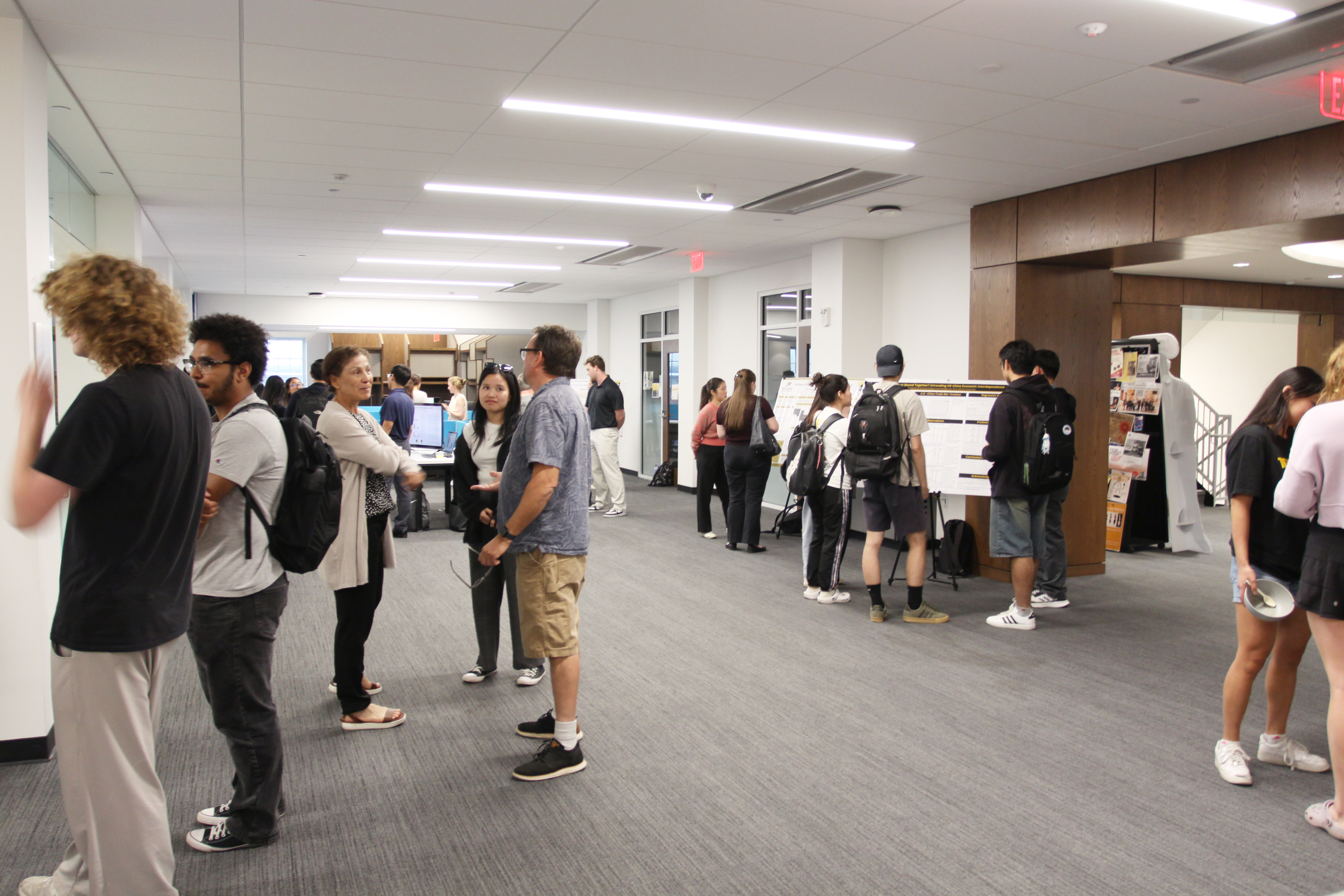
Files
Download Full Text (5.5 MB)
Document Type
Poster
Publication Date
Fall 2024
Abstract
Cell adhesion includes various processes and is essential in cell communication and regulation. The mechanical interactions between a cell and its extracellular matrix control the behavior and function of a cell. In this project, we are studying cell attachment in different ways. The epidermal monostrato layer is a vertical and horizontal interaction and is not accounted for in usual assay protocols so I wanted to investigate this by creating an assay including multiple cell layers, a monolayer and an attached layer, to further develop a protocol for optimal cell-to-cell attachment. I hypothesized that the number of cell attachments to the monolayer would increase as time in the incubator during the attachment period increased. This project required significant modification of the protocol, including 1) adding a monolayer of epidermal cells to replicate cellular attachment; 2) discovering optimal cell densities for both the monolayer and the attached layer of cells; 3) finding the optimal time for cell-to-cell attachment, 4) adjusting the labeling step to be able to distinguish between established cells and those being applied in the assay, and 5) altering the quantification protocol to accurately quantify the number attached cells. This protocol represented significant troubleshooting, as the established layer of epidermal cells had less stability than under normal conditions
Recommended Citation
Ortega, Tiala '26 and Doçi, Colleen L., "Designing an Attachment Assay for Epidermal Cell-to-Cell Attachment" (2024). Annual Student Research Poster Session. 148.
https://scholarship.depauw.edu/srfposters/148



Funding and Acknowledgements
Funding provided by the Asher Research Fund.